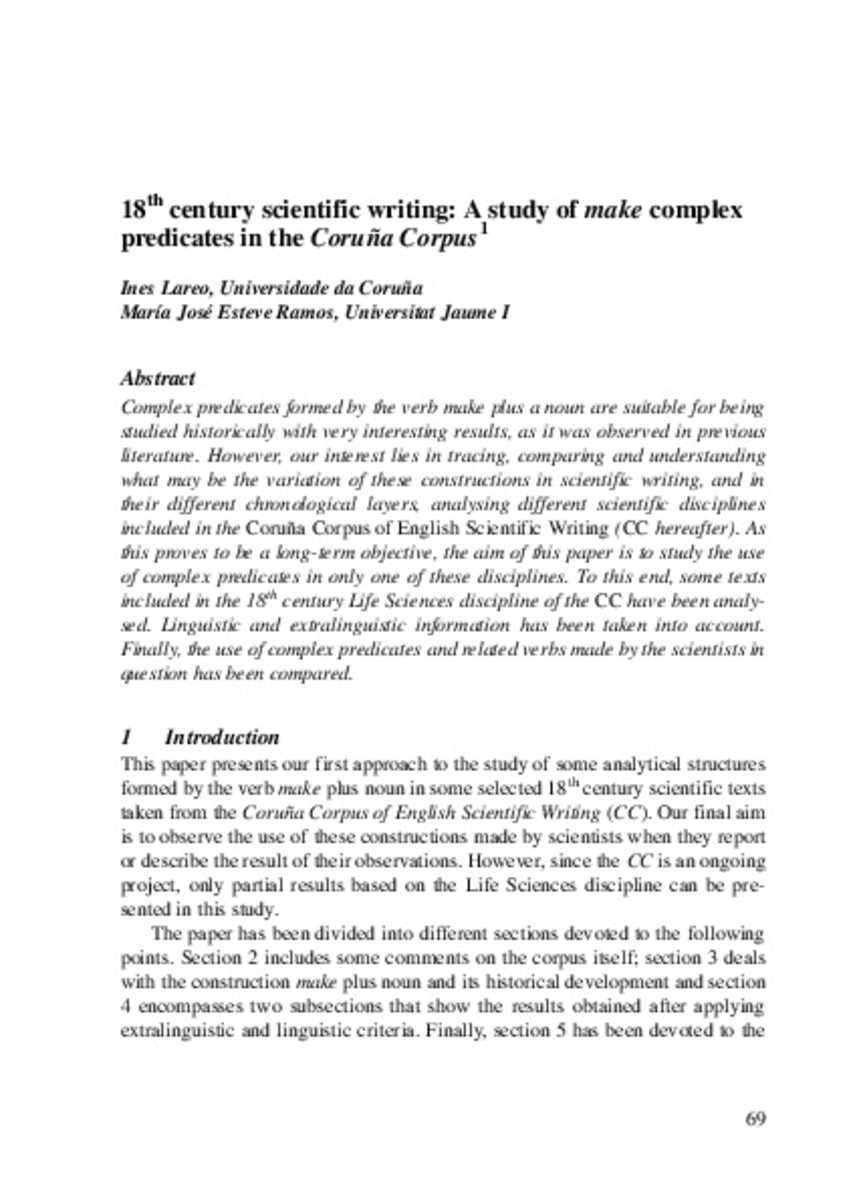Mostrar el registro sencillo del ítem
18th century scientific writing: A study of make complex predicates in the Coruña Corpus
| dc.contributor.author | Esteve Ramos, María José | |
| dc.contributor.author | Lareo, Inés | |
| dc.date.accessioned | 2010-12-09T09:13:45Z | |
| dc.date.available | 2010-12-09T09:13:45Z | |
| dc.date.issued | 2008 | |
| dc.identifier.issn | 08015775 | |
| dc.identifier.uri | http://hdl.handle.net/10234/20073 | |
| dc.description.abstract | Complex predicates formed by the verb make plus a noun are suitable for being studied historically with very interesting results, as it was observed in previous literature. However, our interest lies in tracing, comparing and understanding what may be the variation of these constructions in scientific writing, and in their different chronological layers, analysing different scientific disciplines included in the Coruña Corpus of English Scientific Writing (CC hereafter). As this proves to be a long-term objective, the aim of this paper is to study the use of complex predicates in only one of these disciplines. To this end, some texts included in the 18th century Life Sciences discipline of the CC have been analysed. Linguistic and extralinguistic information has been taken into account. Finally, the use of complex predicates and related verbs made by the scientists in question has been compared | |
| dc.format.extent | P. 69-96 | |
| dc.language.iso | eng | |
| dc.publisher | International Computer Archive of Modern and Medieval English | |
| dc.relation.isPartOfSeries | Icame journal : computers in English linguistics; núm. 32 | |
| dc.rights.uri | http://rightsstatements.org/vocab/CNE/1.0/ | * |
| dc.subject.other | Lingüística computacional | |
| dc.subject.other | Anglès | |
| dc.title | 18th century scientific writing: A study of make complex predicates in the Coruña Corpus | |
| dc.type | info:eu-repo/semantics/article | |
| dc.rights.accessRights | info:eu-repo/semantics/openAccess | |
| dc.type.version | info:eu-repo/semantics/publishedVersion |
Ficheros en el ítem
Este ítem aparece en la(s) siguiente(s) colección(ones)
-
ANG_Articles [302]







